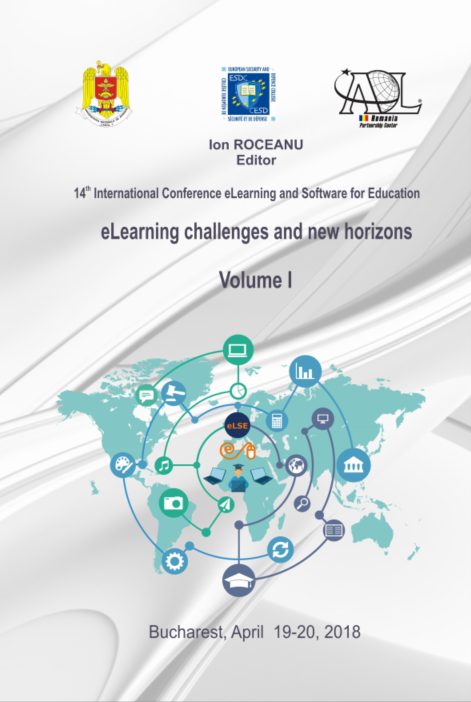Teachers’ Perspective on Using of New Pedagogical Approaches for Students with Hearing Impairment
Teachers’ Perspective on Using of New Pedagogical Approaches for Students with Hearing Impairment
Author(s): Marilena Bratu, Cristian Buică-Belciu, Dorothea Lidia CaramanSubject(s): Social Sciences, Education
Published by: Carol I National Defence University Publishing House
Keywords: Special educational needs; augmented reality; gamification; self-directed learning; hearing impairment;
Summary/Abstract: This paper aims to present a theoretical and practical analysis of new pedagogical approaches (Self-Directed Learning, Gamification and Augmented Reality) in working with users with special educational needs. These new pedagogical approaches are proposed in the NEWTON European project. NEWTON project, as a part of European Union's Horizon 2020 Research and Innovation programme, is currently developing new pedagogical environments in order to improve the way STEM subjects are taught throughout European schools. NEWTON project include 14 European academic and industry partners. NEWTON emphasizes, among other things, the adaptation of modern methods and technologies to the needs of students with special educational needs, including children with hearing impairments. Using new approaches in education like Augmented Reality or Gamification has been a trending issue in the recent years. However, there is a limited body of research on these approaches for students with special educational needs. In order to analyze the modern pedagogical approaches proposed by NEWTON from the perspective of the activity with the children with hearing impairment, we followed, the following steps: o Description of the main features of the development of children with hearing impairment, because from these result the special requirements in the school activity. o Collecting and analyzing the opinions of teachers working with this category of children regarding the benefits and limitations of modern pedagogical approaches proposed in comparison to classical ones. This included 32 teachers who have experience of working with children with hearing impairment. There were meetings with teachers presenting modern pedagogical approaches and answers to questions. Later, each teacher was asked to fill out a questionnaire with open questions on the benefits and limitations of these methods for learning with children with hearing disabilities.
Journal: Conference proceedings of »eLearning and Software for Education« (eLSE)
- Issue Year: 14/2018
- Issue No: 01
- Page Range: 63-70
- Page Count: 8
- Language: English

